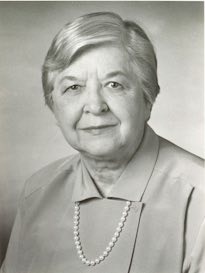Stephanie L. Kwolek spearheaded the discovery, development and processing of high performance aramid fibers. These fibers, most notably Kevlar offer opportunities across the globe to save lives and assist humanity.
As a child, Kwolek was encouraged by her father to learn about nature and enjoyed math and science. Initially, she planned upon a career in medicine, graduated from Margaret Morrison Carnegie College, now a part of Carnegie Mellon University, and earned her BS degree in chemistry.
Searching for employment to save money for medical school, Kwolek was hired by the Dupont Company for a research position at the textile fibers laboratory. Working with great determination, she earned a transfer to Dupont’s pioneering research laboratory in Delaware. She specialized in low-temperature processes for the creation of long molecule chains that resulted in petroleum-based synthetic fibers of tremendous rigidity and strength.
In 1965, she discovered a new fiber, an aramid fiber and a new branch of synthetics, liquid crystalline polymers. Thoughts of medical school faded. Kwolek engaged in four decades of cutting edge chemical research. It was ten years before the first Kevlar bulletproof vests came on the market(1975). Kevlar today has hundreds of uses and has saved thousands of lives.
Kwolek was the recipient or co-recipient of 17 United States patents, including one for the spinning method that made commercial aramid fibers feasible, and five for the prototype from which Kevlar was created. An Inductee of the National Inventors Hall of Fame and the Engineering and Science Hall of Fame, Kwolek won the 1999 Lemelson-MIT Lifetime Achievement Award, the 1996 National Medal of Technology, the Perkin Medal, and the American Innovator Award (1994). She was known for mentoring women scientists and for her contributions to science education of young children.

